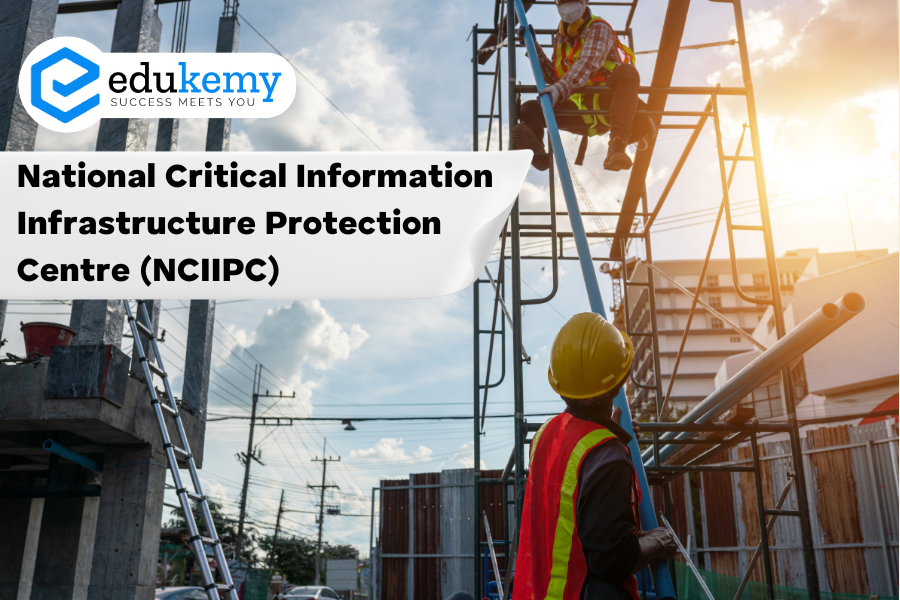
The National Critical Information Infrastructure Protection Centre (NCIIPC) is a Government of India organization established under the Information Technology Act, 2000. It operates as the National Nodal Authority for Critical Information Infrastructure Protection, with its headquarters in New Delhi. The primary objective of NCIIPC is to safeguard critical information infrastructure from cyber threats and attacks.
Contents
- 1 FAQs
- 1.1 Q: What is the National Critical Information Infrastructure Protection Centre (NCIIPC)?
- 1.2 Q: What does the NCIIPC protect?
- 1.3 Q: How does the NCIIPC work to safeguard critical information infrastructure?
- 1.4 Q: What are the key initiatives undertaken by the NCIIPC?
- 1.5 Q: How can organizations benefit from engaging with the NCIIPC?
- 2 In case you still have your doubts, contact us on 9811333901.
Mandate:
- Legal Basis: NCIIPC is established and operates under the provisions of the Information Technology Act, 2000.
- Critical Information Infrastructure (CII): The Information Technology Act, 2000 defines Critical Information Infrastructure (CII) as computer resources whose incapacitation or destruction would have a debilitating impact on national security, economy, public health, or safety.
Critical Sectors Identified by NCIIPC:
- Power and Energy:
- Protection of information infrastructure related to power generation and distribution.
- Banking, Financial Services, and Insurance (BFSI):
- Safeguarding information systems in the banking, financial, and insurance sectors.
- Telecommunications:
- Ensuring the security of information infrastructure in the telecommunications sector.
- Transport:
- Protection of critical information infrastructure in transportation systems.
- Government:
- Securing information systems within government organizations.
- Strategic and Public Enterprises:
- Safeguarding critical information infrastructure in strategic sectors and public enterprises.
Roles and Functions:
- Coordination: NCIIPC serves as the nodal agency for coordinating cybersecurity operations related to critical infrastructures in India.
- Guidance: Operates under the guidance of the National Technical Research Organization (NTRO).
- Sectoral CERTs: Sets up sectoral Computer Emergency Response Teams (CERTs) to address cybersecurity threats in specific critical sectors.
- Protection Measures: Formulates and implements measures to protect the nation’s critical information infrastructure.
Significance: NCIIPC plays a crucial role in enhancing the cybersecurity posture of critical sectors that are vital for the nation’s security and functioning. By identifying and safeguarding critical information infrastructure, NCIIPC contributes to the overall resilience of the country’s cybersecurity landscape.
FAQs
Q: What is the National Critical Information Infrastructure Protection Centre (NCIIPC)?
The NCIIPC is an organization established by the Government of India to safeguard the nation’s critical information infrastructure from cyber threats and attacks.
Q: What does the NCIIPC protect?
The NCIIPC protects critical information infrastructure (CII) sectors such as energy, transportation, banking and finance, telecommunications, defense, space, and government services, which are vital for the functioning of the country’s economy and security.
Q: How does the NCIIPC work to safeguard critical information infrastructure?
NCIIPC works through collaboration with various stakeholders, including government agencies, private sector entities, and international partners. It conducts risk assessments, provides guidelines and standards for cybersecurity practices, offers training and capacity building programs, and facilitates information sharing and threat intelligence to enhance the resilience of critical infrastructure against cyber threats.
Q: What are the key initiatives undertaken by the NCIIPC?
The NCIIPC undertakes various initiatives such as the development of sector-specific cybersecurity guidelines, conducting vulnerability assessments and audits, establishing security operations centers (SOCs), organizing workshops and conferences, and fostering international cooperation for cybersecurity resilience.
Q: How can organizations benefit from engaging with the NCIIPC?
Organizations can benefit from engaging with the NCIIPC by gaining access to expert guidance, resources, and best practices for enhancing their cybersecurity posture. Collaboration with NCIIPC can help organizations mitigate cyber risks, improve incident response capabilities, and ensure compliance with cybersecurity regulations, ultimately contributing to the overall resilience of critical information infrastructure.
In case you still have your doubts, contact us on 9811333901.
For UPSC Prelims Resources, Click here
For Daily Updates and Study Material:
Join our Telegram Channel – Edukemy for IAS
- 1. Learn through Videos – here
- 2. Be Exam Ready by Practicing Daily MCQs – here
- 3. Daily Newsletter – Get all your Current Affairs Covered – here
- 4. Mains Answer Writing Practice – here

